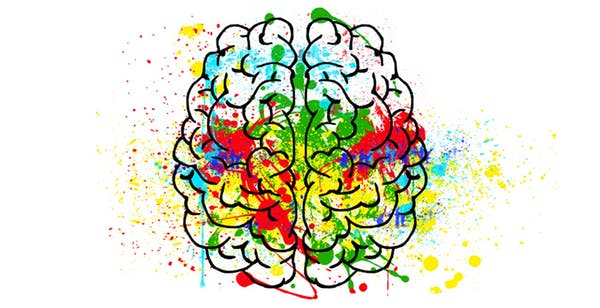What is imagination, how did we come about to be creatures who could express imagination, a thought, a solution to a problem. I believe imagination resulted from the need to solve complex problems and the increasing social group our ancestors began to find themselves and this patterns became etched into our DNA as a species. The dictionary describes imagination as the faculty or action of forming new ideas, or images or concepts of external objects not present to the senses. As a species our very existence is fueled by our imagination and the relentless drive to bring to reality our imagination, while it is a very common of acts to implore all and sundry to imagine, there are some who can not imagine at all. Imagine an apple floating in front of you. Now see if you can rotate it around in your mind. Look at it from the top, bottom – does it have any blemishes? How clearly can you see it? Some people see the apple perfectly, like watching a movie, while others have a very poor wavering image. Although it might be hard to believe, a small proportion of otherwise healthy people report having no visual experience at all. In other words, their minds are completely blind – no matter how hard they try they don’t seem to see the apple. In fact, such individuals are often startled to find that people are not speaking in metaphors when they say, “I picture it in my mind’s eye.” This phenomenon of mind blindness has only recently been given a proper name- Congenital Aphanasia. Research in the general population shows that visual imagery involves a network of brain activity spanning from the frontal cortex all the way to the visual areas at the back of the brain, and it is a widely held hypothesis that Vividness of Visual Imagery Questionnaire (which are these really interesting sets of questions developed by a British psychologist David Marks, to assess how well or poorly you visualize or imagine) is an essential tool in the scientific investigation of mental imagery as a phenomenological, behavioral and neurological construct. So the question is how does this affect a person suffering from blindness of the mind. right of the top of my head i can say the person experiences life differently and might have limited ability to grasp the finer concepts that make life so interesting, Current theories propose that when we imagine something, we try to reactivate the same pattern of activity in our brain as when we saw the image before. And the better we are able to do this, the stronger our visual imagery is. It might be that aphantasic individuals are not able to reactivate these traces enough to experience visual imagery, or that they use a completely different network when they try to complete tasks that involve visual imagery, either way not being able to imagine just plain sucks.....but the upside is studies have shown that Overactive visual imagery is thought to play a role in addiction and cravings, as well as the development of anxiety disorders such as PTSD, basically the reason some folks are addicted to porn and other vices most often times boils down to being able to conjure in their minds eye the effect they have experienced in a new way which feeds the addiction and propels sufferers to expand their reach for those stimulants. Let me know in the comment section your thoughts on the subject matter. As always i am @kboss and i hope you enjoyed reading as much as i enjoyed researching and writing this piece.
Originally posted here: https://steemit.com/psychology/@kboss/blindness-of-the-mind-congenital-aphanasia

No comments:
Post a Comment